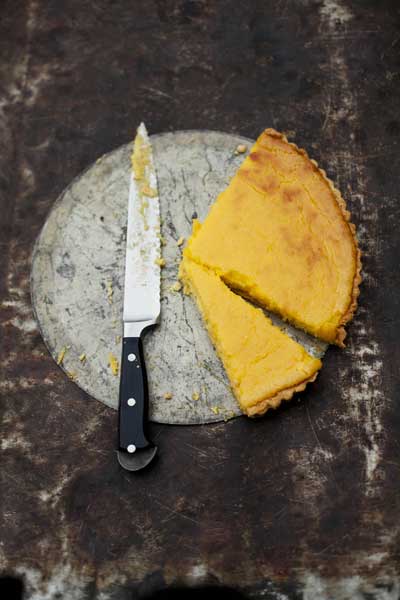
Your support helps us to tell the story
From reproductive rights to climate change to Big Tech, The Independent is on the ground when the story is developing. Whether it's investigating the financials of Elon Musk's pro-Trump PAC or producing our latest documentary, 'The A Word', which shines a light on the American women fighting for reproductive rights, we know how important it is to parse out the facts from the messaging.
At such a critical moment in US history, we need reporters on the ground. Your donation allows us to keep sending journalists to speak to both sides of the story.
The Independent is trusted by Americans across the entire political spectrum. And unlike many other quality news outlets, we choose not to lock Americans out of our reporting and analysis with paywalls. We believe quality journalism should be available to everyone, paid for by those who can afford it.
Your support makes all the difference.So many people I know love lemon tart, the biscuity texture of pastry irresistible against the sharp bite of its thickened curd centre. I like to serve it with a dollop of crème fraîche – its sharpness works well against the tart – but you can use cream if you prefer. You will need a 20cm tart tin for this recipe.
For the pastry
250g/8oz plain flour
1 tsp vanilla extract
1 tbsp icing sugar
140g/5oz chilled, unsalted butter, cut into cubes
1 egg
A little iced water
For the filling
Finely grated zest of one lemon
The juice of 6 lemons
300g/10oz caster sugar
5 whole eggs plus 9 egg yolks
300g/10oz unsalted butter, cut into cubes
To make the pastry, pulse the flour, vanilla, sugar and butter in a food processor until you have the consistency of breadcrumbs, then add the egg and the iced water and pulse again until the mixture comes together into a ball. Remove, wrap in clingfilm and place in the fridge for 30 minutes to chill.
The dough is now ready to roll. Dust a work surface with flour, unwrap the pastry and lay in the centre. Take a rolling pin and place in the centre of the dough. Place both hands on either end of the pin and press down lightly so the dough flattens slightly. Now roll the pastry backwards and forwards and from side to side, alternating the movement until it flattens into a round disc no more than an eighth-of-an-inch thick. Take a 20cm tart tin, preferably with a removable bottom, and place the pastry over the top – I find this easiest if I lift the dough using a rolling pin. Press the pastry firmly into the sides of the tin using your thumbs, then prick the base with a fork and return to the fridge for a further 30 minutes.
While the pastry is chilling, make the filling. Place all the ingredients except the butter into a heavy-based pan large enough to comfortably hold all the ingredients. Whisk over the lowest heat until the sugar has dissolved. Add half the butter and continue to thicken, stirring all the time. Once the mixture is thick enough to coat the back of a spoon, add the rest of the butter. Whisk for a further 10 minutes, by which time the mixture should be very thick. Remove from the heat and allow to cool.
Now set your oven to 180C/350F/ Gas4. Remove your pastry base from the fridge and line with parchment paper. Fill with baking beans then place in the centre of the oven and blind-bake for 20 minutes – it is important that the pastry is really brown. Remove from the oven and pour in the lemon mixture. Turn the oven up to 220C/425F/Gas7, return the tart to the middle shelf and bake for a further 8-10 minutes, by which time the tart should be seductively golden. Allow to cool to room temperature and serve.
Join our commenting forum
Join thought-provoking conversations, follow other Independent readers and see their replies
Comments